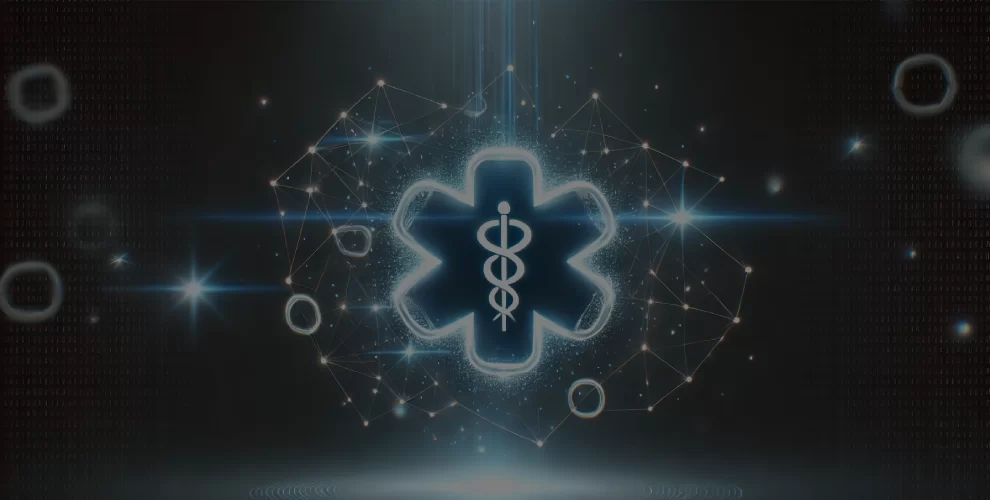
Blockchain in Healthcare: How It’s Improving Patient Care and Data Security
Table of Contents
Introduction
Welcome to WikiGlitz! Blockchain technology is rapidly transforming various sectors, and healthcare is no exception.
With its ability to enhance data security, improve patient care, and streamline operations, blockchain is poised to revolutionize the healthcare industry.
In this guide, we’ll explore the applications of blockchain in healthcare, discuss its benefits, and provide insights into its impact on patient care and data security.
Key Takeaways
- Enhanced Data Security: Blockchain provides a secure, decentralized platform for storing and sharing medical data, reducing the risk of breaches.
- Improved Patient Care: By ensuring data accuracy and accessibility, blockchain enhances the quality of patient care.
- Operational Efficiency: Blockchain streamlines healthcare operations, from clinical trials to supply chain management, improving efficiency and reducing costs.
The Role of Blockchain in Healthcare
Securing Medical Data
Traditional systems are often centralized, making them vulnerable to breaches and unauthorized access.
Blockchain offers a decentralized solution where data is encrypted and stored across a distributed network, making it highly secure and tamper-proof.
- Decentralization: By distributing data across multiple nodes, blockchain eliminates single points of failure, significantly enhancing data security.
- Immutable Records: Once data is added to the blockchain, it cannot be altered or deleted, ensuring a permanent and unchangeable record.
Enhancing Patient Care
Blockchain technology can significantly improve patient care by providing accurate and timely access to patient data.
With blockchain, healthcare providers can share patient information seamlessly and securely, ensuring that patients receive the best possible care.
- Patient Control: Patients have greater control over their data, deciding who can access their medical records and ensuring their privacy is maintained.
- Accurate Data: Blockchain’s immutable nature ensures that patient data is accurate and up-to-date, reducing errors in diagnosis and treatment.
Applications of Blockchain in Healthcare
Clinical Trials
Clinical trials are essential for developing new treatments and medications, but they are often plagued by data fraud and lack of transparency.
Blockchain can streamline the clinical trial process by providing a secure and transparent platform for recording and sharing trial data.
- Data Integrity: Blockchain ensures that clinical trial data is tamper-proof, maintaining its integrity and reliability.
- Transparency: By providing a transparent record of all transactions, blockchain enhances trust among participants and regulators.
- Efficiency: Blockchain can automate many aspects of clinical trials, such as patient recruitment and data collection, improving efficiency and reducing costs.
Supply Chain Management
The pharmaceutical supply chain is complex and prone to issues such as counterfeit drugs and inefficiencies.
Blockchain can provide end-to-end traceability of medications and medical supplies, ensuring that they are genuine and reach the right patients.
- Traceability: Blockchain allows for the tracking of products from manufacturer to patient, reducing the risk of counterfeit drugs.
- Efficiency: By automating supply chain processes, blockchain reduces delays and improves overall efficiency.
- Accountability: Blockchain provides a transparent and auditable record of all transactions, ensuring accountability at every step.
Data Interoperability
One of the significant challenges in healthcare is the lack of interoperability among different systems.
Blockchain can provide a common platform for storing and sharing data, enabling seamless information exchange between different healthcare providers and systems.
- Standardization: Blockchain can standardize data formats, making it easier to share information across different platforms.
- Real-Time Access: Healthcare providers can access patient data in real-time, ensuring timely and accurate information is available when needed.
- Reduced Errors: Improved data interoperability reduces the risk of errors and inconsistencies in patient records.
Benefits of Blockchain in Healthcare
Enhanced Security
Blockchain’s decentralized and cryptographic nature makes it highly secure.
By removing single points of failure and ensuring data immutability, blockchain significantly reduces the risk of data breaches and unauthorized access.
Improved Efficiency
Blockchain can automate many administrative and operational tasks in healthcare, reducing manual processes and improving overall efficiency.
From managing patient records to tracking medical supplies, blockchain streamlines operations and reduces costs.
Better Patient Outcomes
With accurate, real-time access to patient data, healthcare providers can make better-informed decisions, leading to improved patient outcomes.
Blockchain also ensures that patients receive personalized care by providing a comprehensive view of their medical history.
Future of Blockchain in Healthcare
Integration with Emerging Technologies
Blockchain can be integrated with other emerging technologies, such as artificial intelligence (AI) and the Internet of Things (IoT), to create more advanced and efficient healthcare systems.
- AI and Blockchain: AI can analyze large datasets stored on the blockchain, providing insights and predictions that can improve patient care.
- IoT and Blockchain: IoT devices can collect real-time health data, which can be securely stored and shared using blockchain technology.
Regulatory Compliance
As blockchain adoption in healthcare grows, regulatory frameworks will need to evolve to address issues such as data privacy, security, and compliance.
Blockchain can help healthcare providers comply with regulations like HIPAA and GDPR by providing secure and transparent data management solutions.
Conclusion
Blockchain technology is revolutionizing healthcare by enhancing data security, improving patient care, and streamlining operations. Its applications in clinical trials, supply chain management, and data interoperability demonstrate its transformative potential.
As the technology continues to evolve, blockchain will play an increasingly vital role in shaping the future of healthcare.
Stay tuned with WikiGlitz for more insights and updates on blockchain and other groundbreaking technologies!
FAQs
What is blockchain technology in healthcare?
Blockchain is a decentralized, secure technology that provides a transparent and immutable record of transactions, making it ideal for managing healthcare data.
How does blockchain improve data security in healthcare?
Blockchain’s decentralized and cryptographic nature ensures that data is secure, tamper-proof, and protected from unauthorized access.
How is blockchain used in clinical trials?
Blockchain ensures the integrity and transparency of clinical trial data, reducing the risk of fraud and improving efficiency in the trial process.
What is the future of blockchain in healthcare?
The future of blockchain in healthcare includes integration with AI and IoT, improved regulatory compliance, and broader adoption across various healthcare applications.
Want to keep up with our blog?
Our most valuable tips right inside your inbox, once per month.
Error: Contact form not found.
WikiGlitz Team
Welcome to WikiGlitz, your ultimate destination for tech insights and innovation. Our expert team is dedicated to delivering free resources and professional advice on various technology topics, including Artificial Intelligence, Cyber Security, Cloud Computing, and more. We strive to empower our readers with up-to-date information and practical guidance, ensuring you stay ahead in the rapidly evolving tech landscape. At WikiGlitz, we are passionate about making complex technology accessible to everyone. Our team of seasoned experts curates content that is both informative and engaging, helping you understand and leverage the latest tech trends. Whether you're a tech enthusiast or a professional, WikiGlitz is your go-to source for reliable, expert-driven content. Join us on this journey to explore and embrace the future of technology.





